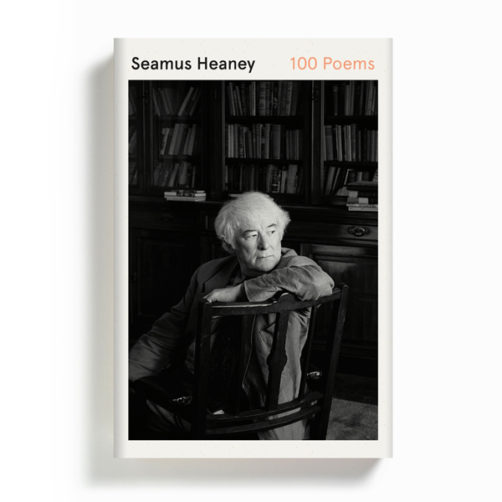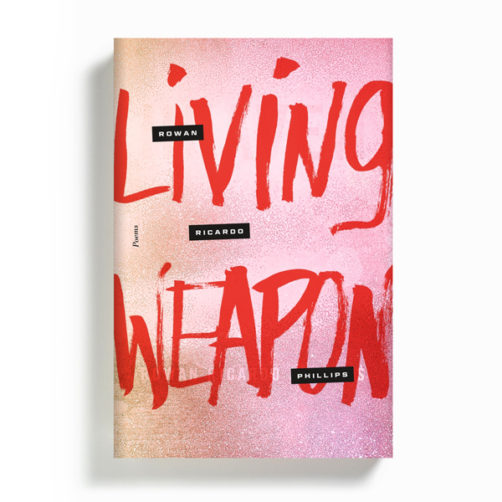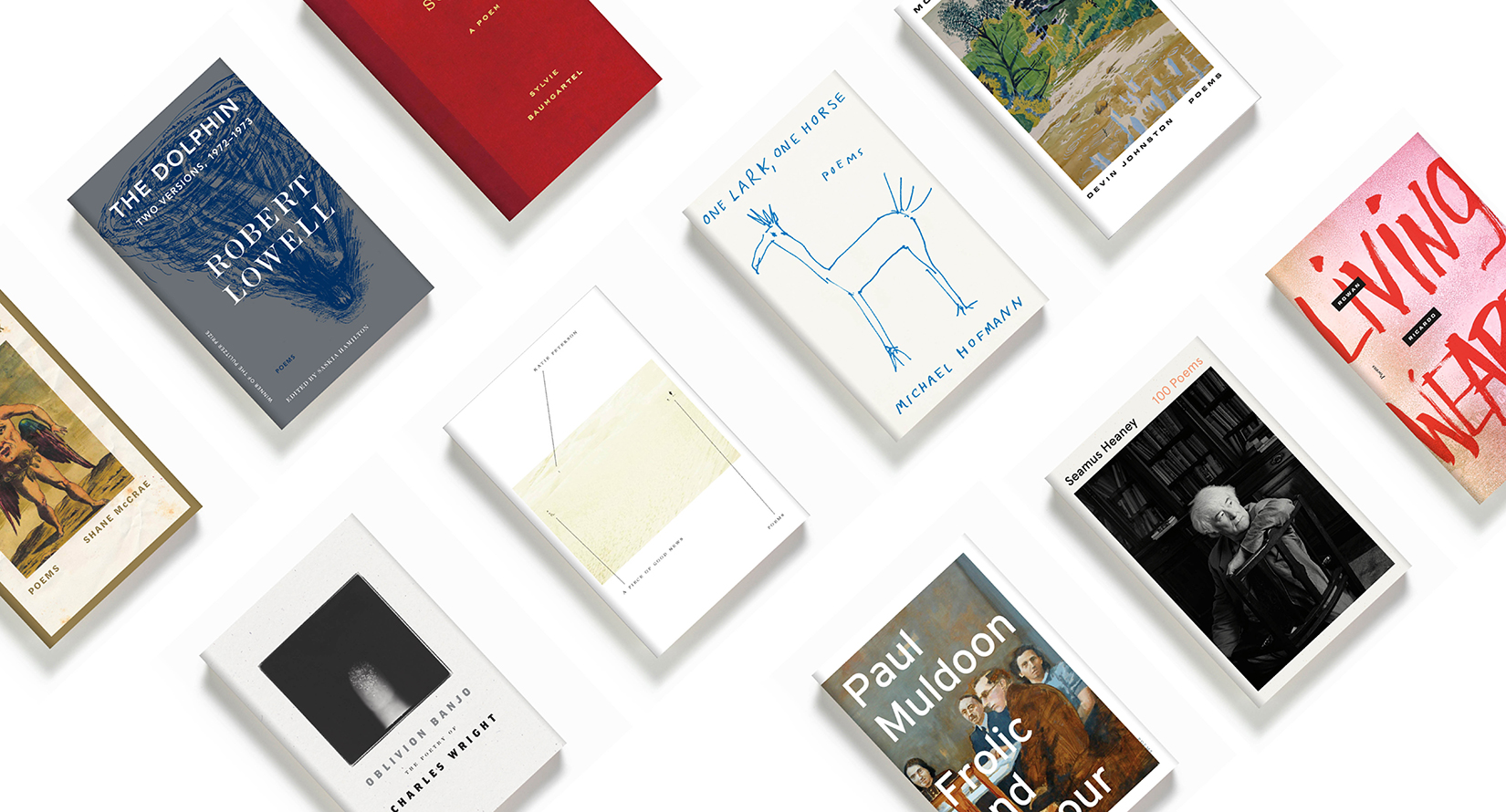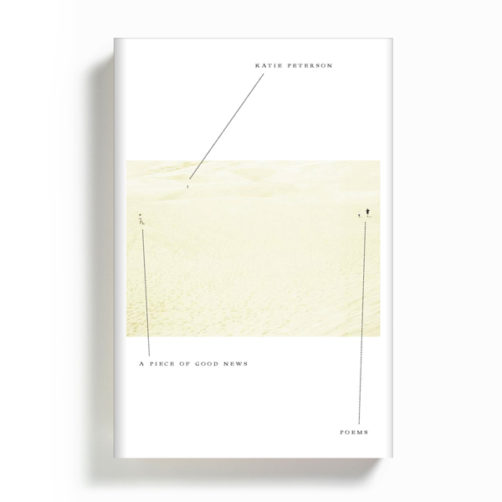FSG’s poetry list for 2019 celebrates voices old and new, from Seamus Heaney to Katie Peterson. These are poems that interrogate today’s politics and anger—that reinvigorate and offer clarity, singing “the music of what happens.”
Published
A Piece of Good News by Katie Peterson
In those days I began to see light under every
bushel basket, light nearly splitting
the sides of the bushel basket. Light came
through the rafters of the dairy where the grackles
congregated like well-taxed citizens
untransfigured even by hope. Understand I was the one
underneath the basket. I was certain I had nothing to say.
When I grew restless in the interior,
the exterior gave.
—from “Autobiographical Fragment”
Imbued with a hallucinatory poetic logic where desire, anger, and sorrow supplant intelligence and reason, Katie Peterson’s poems are powerful meditations on mourning, love, doubt, political citizenship, and happiness.

The Gilded Auction Block by Shane McCrae
I’m made of murderers I’m made
Of nobodies and immigrants and the poor
and a whole / Family the mother’s
liver and her lungs
—from “The Monster Made of America Dreams of America”
He is a prospector for speech rhythms, collecting his material wherever he can.
“Shane McCrae is a shrewd composer of American stories . . . He is a prospector for speech rhythms, collecting his material wherever he can. But American attics are full of old boxes of diaries and letters; and testimony, no matter how arresting, is not itself poetry. What makes McCrae’s compositions so ingenious are their marvels of prosody and form, learned from the English Renaissance poems that he read in libraries when he was just starting out. The result is beautifully up-to-date, old-fashioned work, where the dignity of English meters meets, as in a mosh pit, the vitality—and often the brutality—of American speech.”
—Dan Chiasson, The New Yorker

Mosses and Lichens by Devin Johnston
Not days of anger
but days of mild congestion,
infants of inconstant sorrow,
days of foam in gutters,
blossoms and snow
mingling where they fall,
a spring of cold profusion.
—from “Slow Spring”
As Ange Mlinko has observed of Johnston’s work, “Each poem holds in balance a lapidary concision and utter lushness of vowel-work,” forming a distinctive music. The poems often take place in the middle of life’s journey, at the edge of the woods, at the boundary between human community and wild spaces.

One Lark, One Horse by Michael Hofmann
When all’s said and done, there’s still
the joyful turning towards you
that feels like the oldest, warmest, and quite
possibly
best thing in me that I must stifle,
almost as if you were dead,
or I.
—from “Poem”
The poet explores where he finds himself, geographically and in life.
This new collection by renowned poet Michael Hofmann is his first in twenty years. His voice is as unmistakable as ever—sometimes funny, sometimes caustic; world-facing and yet intimate. The poet explores where he finds himself, geographically and in life.
Forthcoming

100 Poems by Seamus Heaney (8.20.2019)
There are the mud-flowers of dialect
And the immortelles of perfect pitch
And that moment when the bird sings very close
To the music of what happens.
—from “Song”
Nobel laureate Seamus Heaney had the idea to make a personal selection of poems from across the entire arc of his writing life, a collection small yet comprehensive enough to serve as an introduction for all comers. He never managed to do this himself, but now the project has been returned to, resulting in an intimate gathering of poems chosen and introduced by the Heaney family.

Song of Songs by Sylvie Baumgartel (9.24.2019)
Sometimes I like to feel sexy. Sometimes I don’t. Sometimes I like to be very plain. Invisible almost, hiding in plain sight. I want to hide and to be found.
—from “Song of Songs”
In the spirit of the biblical Song of Solomon, Sylvie Baumgartel’s Song of Songs takes the subjects of love and worship, and brings them to the desperate, wild spaces of domestic life. In this groundbreaking book-length poem, Baumgartel explores sex and desire, power and submission.

Oblivion Banjo by Charles Wright (11.5.2019)
The thread that dangles us
between a dark and a darker dark,
Is luminous, sure, but smooth sided.
Don’t touch it here, and don’t touch it there.
Don’t touch it, in fact, anywhere—
Let it dangle and hold us hard, let it flash and swing.
—from “Scar Tissue”
On display is a mind wrestling with the tenuous relationship between the ways we describe the world and its reality.
Oblivion Banjo, a capacious new selection spanning Wright’s decades-long career, showcases the central themes of Wright’s poetry: “language, landscape, and the idea of God.” On display is a mind wrestling with the tenuous relationship between the ways we describe the world and its reality.

Frolic and Detour by Paul Muldoon (11.19.2019)
The great horse of the world stamps and champs at the bit
and lays back one ear
as I approach
from the rear
to hitch it to the world-coach,
mindful of keeping at least one hand on it
so it knows I’m still here.
—from “The Great Horse of the World”
Muldoon’s thirteenth collection explores everything from the pull of time’s interlocking spirals to the drinking habits of our most celebrated writers and the Irish rising. The writing is filled with energy and ambition, and reminds us why Muldoon is “one of the most significant poets of the past fifty years” (Elizabeth Lund, The Washington Post).

The Dolphin by Robert Lowell (edited by Saskia Hamilton) (12.10.2019)
I have sat and listened to too many
words of the collaborating muse,
and plotted perhaps too freely with my life,
not avoiding injury to others,
not avoiding injury to myself—
to ask compassion . . . this book, half fiction,
an eelnet made by man for the eel fighting
my eyes have seen what my hand did.
—from “Dolphin”
Rendered with stunning technical power and control, The Dolphin was controversial from the beginning. Many of the poems include the letters that Robert Lowell’s wife, celebrated writer and critic Elizabeth Hardwick, wrote to him after he left her for the English socialite and writer Caroline Blackwood. He was warned by many, among them Elizabeth Bishop, that “art just isn’t worth that much.” Nevertheless, these poems are a powerful document of an impulsive love, and a record of Lowell’s new life on new terms.
2020 Sneak Peek

Living Weapon by Rowan Ricardo Phillips (2.18.2020)
. . . and we’d do this again
And again and again, without ever
Knowing we were the weapon ourselves,
Stronger than steel, story, and hydrogen.
—from “Even Homer Nods”
A winged man plummets from the troposphere; four NYPD officers enter a cellphone store; concrete sidewalks hang overhead. Phillips offers ruminations on violins and violence, on hatred, on turning forty-three, on the end of existence itself. These are poems of indictment honed in on our political moment, but they are also a love song to the imagination.

